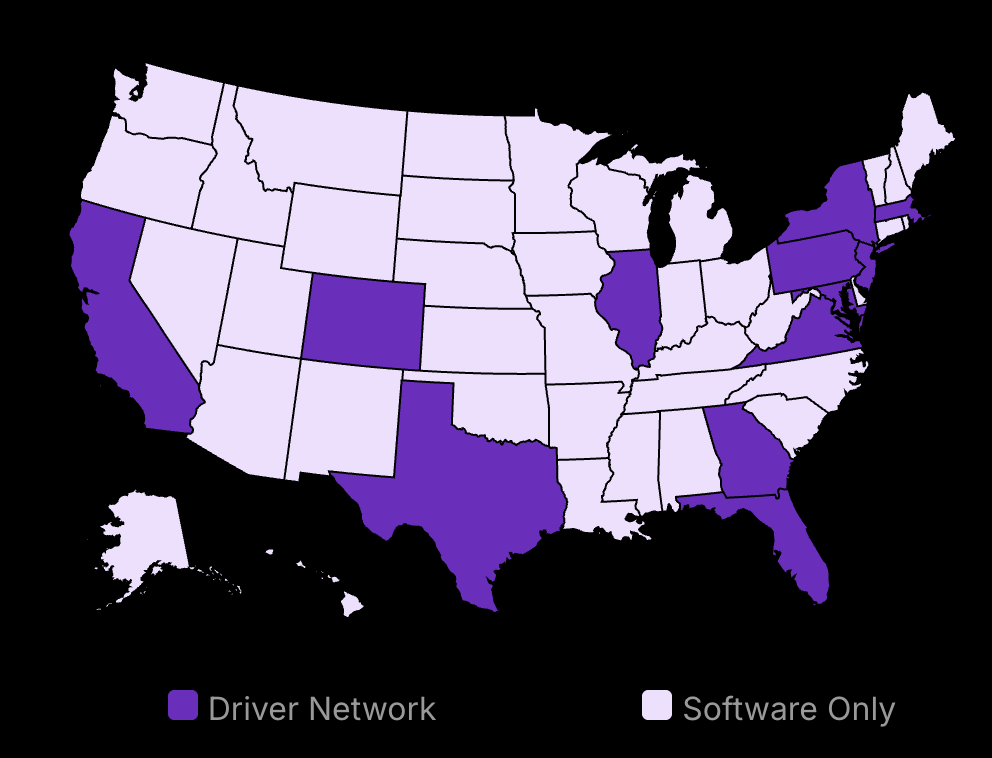In today’s fast-paced e-commerce landscape, efficient inventory management is crucial for success. Our blog explores the top inventory management software solutions for 2025, including some of the best Shopify delivery apps, offering a detailed look into each tool’s pricing, key features, and real-world customer experiences. Uncover how calculating the reorder point formula can elevate your inventory efficiency, ensuring you never miss a sale due to stockouts.
A critical aspect of inventory management, especially as the year closes, is accurately determining your year’s final stock levels. Understanding the correct approach to year-end inventory calculation helps businesses maintain financial accuracy and prepare for the year ahead. Applying advanced methods and up-to-date software ensures you’re ready for the new fiscal year without discrepancies that can impact your bottom line.
Whether you’re managing a small business or a large enterprise, you’ll find insights that help you select the ideal software to streamline your e commerce inventory software processes. Dive in to discover the best solutions for effective e-commerce inventory management and take your operations to new heights. Understand how improving your inventory turnover ratio can significantly enhance your e-commerce success. Find out the importance of this metric and practical steps to optimize it for better efficiency.

Metrobi drivers are rated 4.97 out of 5
Trusted by local businesses for:
- Background-checked professionals
- Specialized in business deliveries
- Same drivers for consistency
- 4.97/5 average delivery rating
The Importance of Ecommerce Inventory Management
Managing inventory in ecommerce businesses is a complex task that goes beyond just keeping track of stock levels. Imagine running a kitchen where you must balance having just enough ingredients without overstocking—this is similar to managing inventory for an ecommerce business. The challenge lies in ensuring you have the right products available while avoiding excess inventory that ties up capital and affects cash flow. Effective inventory management is crucial for maintaining customer satisfaction, optimizing your e-commerce business’s financial health, and ensuring efficient order fulfillment. Understanding the nuances of ecommerce inventory management is key to unlocking the full potential of your online business, impacting everything from customer loyalty to your financial stability.
What Should You Look for in Ecommerce Inventory Management Software?
When evaluating ecommerce inventory management software, consider the following essential features to ensure it meets your business needs:
-
Inventory Tracking and Visibility: Choose software that offers real-time tracking across various sales channels. Look for software that integrates with popular shipping apps and allows you to manage multiple carriers, print shipping labels, and track shipments easily.
-
Multi-location Management: Select software that supports seamless multi-location inventory management if your business operates across multiple warehouses or retail locations. This is particularly important for businesses offering store pickup or local delivery options.
-
Inventory Optimization: Look for systems that use advanced algorithms to optimize stock levels based on historical sales data, demand forecasts, and seasonal trends. Inventory optimization features help you balance supply and demand, ensuring you have the right stock to meet customer needs without tying up excess capital.
-
Shipping Integration: Choose software that offers seamless integration with various shipping carriers like UPS, FedEx, and USPS. The best Shopify shipping apps often include features like estimated delivery dates, packaging options, and the ability to print labels directly from the platform.
-
Material Grouping and Categorization: Effective categorization tools allow you to group inventory items into predefined categories, such as by product type, brand, or SKU. This feature enhances your ability to analyze product performance, identify trends, and make strategic decisions regarding inventory management.
-
Reporting and Analytics: Choose software that offers comprehensive reporting and analytics capabilities. Detailed reports on sales performance, stock movement, and inventory turnover provide valuable insights into your business operations. These analytics help you identify trends, forecast future demand, and make data-driven decisions to optimize inventory management.
-
Support: Ensure the software provider offers responsive customer support to assist with any issues or questions. Reliable support is essential for resolving technical problems and ensuring smooth software operation.
How to Choose Inventory Management Software
Selecting the right inventory management software involves several key considerations:
-
Define Needs: Begin by identifying the specific challenges or gaps in your current inventory management process. Determine the features and functionalities that are essential for addressing these issues. This clarity will help you shortlist software options that align with your business requirements. If you’re considering a robust solution, working with expert Odoo development services can help you implement tailored features that fit your needs.
-
User Base: Consider who will be using the software within your organization. Assess the number of users and their roles to determine the appropriate number of licenses and the ease of use required. Whether the software is intended for ecommerce professionals or the entire organization, it should cater to varying levels of expertise and user needs.
-
Integration Requirements: Evaluate how well the software integrates with other tools you use, such as accounting systems, CRM platforms, project management software, or popular shipping apps. Consider how well the software integrates with your e-commerce platform (like Shopify) and shipping apps. The ability to sync with multiple carriers and automate the shipping process can significantly improve efficiency.
-
Desired Outcomes: Define the outcomes you expect from the software. This might include reducing shipping costs, improving delivery times, or offering more flexible options like local delivery or store pickup.
-
Organizational Fit: Consider how the custom software development will fit into your existing workflows and processes. Evaluate its compatibility with your current operations and identify any potential areas of improvement. Remember, every business is unique, so choose a solution that aligns with your specific needs and enhances your overall efficiency.
If you need further assistance, check out our comprehensive guide on inventory management.
Best E-commerce Inventory Management Solutions
1. Shopify
-
Best for small to medium-sized businesses looking for an all-in-one e-commerce platform with built-in inventory management.
-
14-day free trial
-
From $39/month

Shopify is one of the most popular e-commerce platforms globally, offering a robust inventory management system that allows real-time inventory tracking and automation across multiple sales channels. Shopify offers a range of shipping apps in its app store, including options for estimated delivery dates, local delivery, and store pickup. Best Shopify apps for e-commerce provide seamless integration with various shipping apps, allowing businesses to efficiently manage their shipping process, including printing labels and tracking shipments. Many of these apps offer a free plan or free trial, allowing business owners to test different shipping solutions before committing. It’s ideal for businesses that want to streamline their online store inventory management with a user-friendly interface and extensive app marketplace, including integrations like the Shopify FedEx app and UPS Shopify app. Discover the method for computing the inventory turnover ratio accurately to ensure your business leverages Shopify’s inventory management capabilities to the fullest.
Best Features:
Automated Inventory Tracking: Automatically updates inventory levels as sales are made across different channels.
Real-Time Updates: Ensures that stock levels are always current, reducing the risk of overselling.
Multi-Channel Integration: Easily integrates with major platforms like Amazon, eBay, and social media sites like Facebook and Instagram, streamlining inventory management across various sales outlets.
Pros:
User-Friendly Interface: Designed for ease of use, even for those new to e-commerce.
Extensive App Marketplace: Offers a wide range of apps that can extend the functionality of Shopify’s inventory management.
Reliable Customer Support: 24/7 support is available via chat, email, or phone.
Cons:
Additional Costs for Apps: Some advanced inventory features may require third-party apps, adding to the overall cost.
Limited Built-In Reporting: More detailed inventory reports often require upgrading to higher-tier plans.
Integrations:
Shopify integrates seamlessly with Amazon, eBay, Facebook, Instagram, Google Shopping, QuickBooks, Xero, Mailchimp, and shipping carriers like USPS, UPS, FedEx, and DHL.
Rating & Reviews:
G2: 4.5/5 (4,200+ reviews)
Capterra: 4.4/5 (7,000+ reviews)
2. QuickBooks
Best for medium to large businesses needing comprehensive inventory and order management with integrated accounting.
Free trial available upon request
From $30/month (via QuickBooks Online)

TradeGecko, rebranded as QuickBooks Commerce, is a powerful vendor management tool that handles complex inventory needs across multiple locations and channels. It integrates well with popular shipping apps, enabling businesses to streamline their shipping process and offer customers more options like local delivery and store pickup.
Best Features:
Multi-Channel Support: Manages inventory across multiple sales channels, including online stores, marketplaces, and wholesale.
Demand Forecasting: Uses historical data to predict future inventory needs, helping businesses avoid stockouts and overstock.
Batch and Expiry Tracking: Keeps track of product batches and expiry dates, crucial for industries like food and pharmaceuticals.
Pros:
Comprehensive Inventory Management: Offers a wide range of features for managing complex inventory needs.
Integration with QuickBooks: Streamlines accounting and inventory management in one system.
Scalable: Suitable for growing businesses that need advanced inventory management capabilities.
Cons:
Learning Curve: May require some time to learn due to its extensive features.
Custom Pricing: Pricing can be opaque and varies based on business size and needs.
Integrations:
QuickBooks Commerce integrates with Shopify, WooCommerce, BigCommerce, Amazon, eBay, ShipStation, Xero, QuickBooks Online, and various 3PL providers.
Rating & Reviews:
G2: 4.2/5 (300+ reviews)
Capterra: 4.4/5 (200+ reviews)
3. Skubana
Best for high-volume sellers needing advanced inventory management and automation.
Free trial available upon request
From $1,000/month

Skubana is designed for large e-commerce operations that require a centralized system to manage and track inventory together, automate order workflows, and provide detailed analytics. Its robust shipping features include integration with multiple carriers, automated label printing, and order tracking, making it an efficient Shopify shipping app for high-volume sellers. It’s particularly suitable for businesses that need to streamline their operations and reduce errors at scale.
Best Features:
Centralized Inventory Management: Manages inventory across all sales channels from a single platform.
Automation of Order Workflows: Automates key processes, such as order routing, inventory allocation, and shipping.
Detailed Analytics and Reporting: Provides in-depth insights into inventory performance, helping businesses make data-driven decisions.
Pros:
Highly Scalable: Ideal for businesses that experience high order volumes and need a robust inventory management system.
Comprehensive Automation: Reduces manual work and potential errors through extensive automation features.
Advanced Analytics: Offers powerful reporting tools to track performance and optimize operations.
Cons:
High Cost: Pricing starts at $1,000/month, making it a significant investment for smaller businesses.
Complex Setup: The setup process can be complex, requiring time and expertise to configure correctly.
Integrations:
Skubana integrates with Shopify, Amazon, eBay, Walmart, ShipStation, QuickBooks, Xero, and various 3PL providers.
Rating & Reviews:
Capterra: 4.6/5 (80+ reviews)
G2: 4.4/5 (150+ reviews)
4. Cin7
Best for retailers and wholesalers with multi-location operations.
14-day free trial
From $349/month

Cin7 is a cloud-based inventory management system that excels in managing inventory across multiple locations and integrating with various e-commerce platforms. It offers strong shipping capabilities, including integration with major carriers, estimated delivery date calculations, and support for local delivery and in-store pickup local delivery options. It’s a great fit for businesses that operate both online and offline, offering a unified system to manage all their inventory and sales channels, including store pickup and local delivery.
Best Features:
Multi-Location Support: Manages inventory across various locations, including warehouses and retail stores.
Real-Time Stock Tracking: Ensures accurate stock levels by updating inventory in real-time as sales are made.
Integration with E-commerce Platforms: Seamlessly connects with popular e-commerce platforms to streamline inventory and order management.
Pros:
Versatile: Suitable for businesses that sell both online and in physical stores.
Comprehensive Features: Offers a wide range of tools to manage inventory, orders, and sales across different channels.
Customizable: Can be tailored to fit the specific needs of various business models.
Cons:
Pricey for Smaller Businesses: Starting at $299/month, it may be too expensive for smaller operations.
Steep Learning Curve: The system’s extensive features can make it difficult to learn and fully utilize without proper training.
Integrations:
Cin7 integrates with Shopify, WooCommerce, BigCommerce, Amazon, eBay, Xero, QuickBooks, and various shipping providers like FedEx, DHL, and UPS.
Rating & Reviews:
TrustRadius: 4.3/5 (200+ reviews)
Capterra: 4.2/5 (170+ reviews)
5. Veeqo
Best for e-commerce businesses looking to streamline inventory and shipping management.
30-day free trial
From $156/month

Veeqo offers centralized inventory control and automated stock updates, making it an excellent choice for businesses that need efficient order fulfillment across multiple sales channels. Its shipping features, including integration with popular carriers and the ability to print labels directly, make it one of the best Shopify shipping apps available. Its ease of use and strong multi-channel support are key benefits.
Best Features:
Centralized Inventory Control: Manages inventory across all sales channels from one dashboard.
Automated Stock Updates: Automatically updates inventory levels across all platforms, reducing the risk of overselling.
Multi-Channel Order Management: Streamlines order processing across various channels, including online stores and marketplaces.
Pros:
User-Friendly: Intuitive interface makes it easy to use, even for those new to inventory management.
Strong Multi-Channel Support: Efficiently manages inventory and orders across multiple sales channels.
Fast Implementation: Easy to set up and get running quickly.
Cons:
Limited Customization: May lack the flexibility that some larger businesses require.
Pricey for Small Businesses: Starting at $156/month, it might be costly for smaller e-commerce operations.
Integrations:
Veeqo integrates with Shopify, WooCommerce, Amazon, eBay, Etsy, Xero, QuickBooks, and major shipping carriers like Royal Mail, FedEx, and DHL.
Rating & Reviews:
G2: 4.2/5 (350+ reviews)
Capterra: 4.4/5 (400+ reviews)
6. Brightpearl
Best for omnichannel retailers needing a scalable inventory and order management solution.
Free demo available upon request
From $500/month (custom pricing)

Brightpearl is an omnichannel retail management system offering comprehensive tools for inventory, order, and financial management. It offers robust shipping features, including integration with multiple carriers, automated shipping rules, and support for various delivery options, enhancing the overall customer experience. It’s particularly suited for growing businesses that need to manage complex operations across multiple sales channels, both online and offline.
Best Features:
Inventory and Order Management: Provides real-time visibility and control over inventory across all channels, reducing the risk of stockouts and overstocking.
Financial Management: Integrates with accounting tools to manage finances, offering automated accounting, tax management, and financial reporting.
Real-Time Insights: Delivers powerful analytics and reporting tools that offer real-time insights into sales performance, inventory levels, and customer behavior.
Pros:
Scalable: Ideal for growing businesses that need a system capable of handling increased volume and complexity.
Omnichannel Capabilities: Provides a unified solution for managing inventory, orders, and customer data across multiple sales channels, including online stores, brick-and-mortar stores, and marketplaces.
Comprehensive Financial Management: Integrates seamlessly with accounting tools, automating financial processes and ensuring accurate financial reporting.
Cons:
High Starting Price: With custom pricing starting around $500/month, it may be too expensive for smaller businesses or those just starting.
Complex Implementation: Due to its extensive features and capabilities, implementation can be time-consuming and may require a professional setup.
Integrations:
Brightpearl integrates with Shopify, BigCommerce, Magento, Amazon, eBay, Xero, QuickBooks, and shipping carriers like FedEx, UPS, and DHL.
Rating & Reviews:
Capterra: 4.5/5 (150+ reviews)
G2: 4.3/5 (200+ reviews)
7. SkuVault
Best for medium to large e-commerce businesses needing advanced warehouse management and inventory tracking.
Free demo available upon request
From $359/month

SkuVault is a warehouse management system (WMS) that excels in providing advanced inventory tracking and management capabilities. Its shipping capabilities include integration with major carriers, automated label printing, and support for various delivery methods, making it a comprehensive shipping solution for e-commerce businesses. It’s particularly useful for businesses that require detailed tracking of inventory across multiple warehouses and sales channels.
Best Features:
Advanced Warehouse Management: Offers tools for tracking inventory across multiple warehouses, including bin locations, barcode scanning, and more.
Inventory Accuracy: Reduces errors and stock discrepancies with real-time inventory updates and audit trails.
Multi-Channel Syncing: Syncs inventory across multiple sales channels to ensure consistent stock levels and avoid overselling.
Pros:
Detailed Reporting: Provides comprehensive reports on inventory levels, order statuses, and warehouse operations.
User-Friendly Interface: Designed to be intuitive, making it easier for warehouse staff to use without extensive training.
Scalable: Suitable for businesses with growing inventory needs and complex warehouse operations.
Cons:
High Starting Price: The cost can be prohibitive for smaller businesses or those with limited budgets.
Complex Setup: Initial setup and configuration may require time and professional assistance.
Integrations:
SkuVault integrates with Shopify, Amazon, eBay, BigCommerce, WooCommerce, ShipStation, QuickBooks, and various shipping carriers.
Rating & Reviews:
G2: 4.4/5 (200+ reviews)
Capterra: 4.5/5 (300+ reviews)
8. Zoho Inventory
Best for small to medium-sized businesses looking for an affordable, cloud-based inventory management solution.
14-day free trial
From $29/user/month

Zoho Inventory is part of the Zoho suite of business applications, offering an affordable and cloud-based solution for inventory management. It offers solid shipping features, including integration with multiple carriers, estimated delivery dates, and support for local delivery options, making it a cost-effective and popular shipping app for small to medium-sized businesses. It’s particularly well-suited for smaller businesses that need an easy-to-use platform with strong integrations and automation features.
Best Features:
Multi-Channel Inventory Management: Manages inventory across various sales channels, including online stores, marketplaces, and offline sales.
Order Automation: Automates key processes such as order management, stock adjustments, and invoicing.
Batch and Expiry Tracking: Tracks product batches and expiry dates, making it ideal for businesses dealing with perishable goods.
Pros:
Affordable Pricing: Offers a cost-effective solution for smaller businesses with straightforward inventory needs.
Part of Zoho Ecosystem: Integrates seamlessly with other Zoho products like Zoho CRM, Zoho Books, and Zoho Commerce.
Cloud-Based: Access your inventory data from anywhere, at any time, on any device.
Cons:
Limited Advanced Features: May not have the depth of features required by larger businesses or those with complex inventory needs.
Restricted Customization: Customization options are somewhat limited compared to higher-end solutions.
Integrations:
Zoho Inventory integrates with Shopify, Amazon, eBay, Etsy, WooCommerce, Xero, QuickBooks, and other Zoho apps.
Rating & Reviews:
G2: 4.3/5 (200+ reviews)
Capterra: 4.5/5 (300+ reviews)
9. Linnworks
Best for large e-commerce businesses needing a comprehensive platform for inventory, order management, and automation.
Free demo available upon request
From $449/month (volume-based pricing)

Linnworks offers an all-in-one platform that automates key aspects of inventory and order management, making it ideal for large e-commerce businesses that need to streamline their operations. With robust multi-channel support, it helps businesses keep track of inventory across various platforms.
Best Features:
Centralized Inventory Management: Unifies inventory management across multiple sales channels, reducing the risk of overselling.
Order Automation: Automates order processing, routing, and shipping, helping to streamline workflows.
Insights & Reporting: Provides detailed analytics and reports, offering insights into sales trends, inventory levels, and performance metrics.
Pros:
Extensive Multi-Channel Support: Supports a wide range of sales channels, including online marketplaces and physical stores.
Powerful Automation Features: Automates routine tasks, allowing businesses to focus on growth and customer service.
Scalable for Large Businesses: Designed to handle the complexities of large e-commerce operations with high order volumes.
Cons:
Higher Price Point: The volume-based pricing can become expensive for businesses with high order volumes.
Complex Learning Curve: The extensive features may require time to learn and fully utilize.
Integrations:
Linnworks integrates with Amazon, eBay, Shopify, BigCommerce, WooCommerce, Magento, Xero, QuickBooks, and various shipping carriers.
Rating & Reviews:
G2: 4.3/5 (400+ reviews)
Capterra: 4.4/5 (350+ reviews)
10. MRPeasy
Best for small to medium-sized manufacturers looking for an affordable and easy-to-use ERP system with inventory management.
30-day free trial
From $49/user/month

MRPeasy is a cloud-based ERP solution specifically designed for small to medium-sized manufacturers. It offers robust inventory management features alongside production planning, making it a great choice for manufacturers who need to manage their inventory alongside other aspects of their business.
Best Features:
Production Planning: Helps manufacturers plan production schedules, ensuring that inventory is aligned with manufacturing needs.
Inventory Tracking: Tracks raw materials and finished goods in real time, helping businesses maintain accurate inventory levels.
Order Management: Manages customer orders from creation to fulfillment, streamlining the order-to-delivery process.
Pros:
Affordable: Provides a cost-effective ERP solution tailored for smaller manufacturers.
User-Friendly: Designed with ease of use in mind, making it accessible even to those without extensive ERP experience.
Integrated CRM: Includes a built-in CRM system for managing customer relationships and sales.
Cons:
Limited Scalability: May not be suitable for larger manufacturers or those with more complex needs.
Basic Reporting: Reporting features are somewhat basic compared to more advanced ERP systems.
Integrations:
MRPeasy integrates with Xero, QuickBooks, Shopify, WooCommerce, and various shipping carriers.
Rating & Reviews:
G2: 4.5/5 (150+ reviews)
Capterra: 4.6/5 (200+ reviews)
Choosing the Right Inventory Management Tool for Your Business
From Shopify’s intuitive tracking to Skubana’s advanced analytics, each tool has unique strengths. TradeGecko’s demand forecasting and Cin7’s multi-location support stand out. Veeqo and Brightpearl also offer robust, centralized solutions.
Choosing the right tool can streamline your operations and boost efficiency. When selecting an inventory management tool, consider how it integrates with shipping apps and supports your specific delivery and shipping needs, including local delivery date options. The best solutions will offer features like multi-carrier support, automated label printing, and flexible delivery options, helping you create an efficient shipping process that enhances customer satisfaction. Understand why selecting the right inventory management tool for your ecommerce operations is a pivotal choice in enhancing customer satisfaction and operational efficiency.
In addition to choosing the right software, understanding how to create a comprehensive inventory report is essential for effective inventory management. An impactful inventory report can provide valuable insights into stock levels, sales trends, and product performance. By employing the right tools and methodologies, you can tailor reports to reflect all the necessary data you need. For more guidance on crafting an effective inventory report, check out this article on creating an inventory report that encompasses all the vital information.
Assess your business size and needs, then match them to the features and pricing outlined. You’ll find insights that help you select the ideal software to streamline your inventory processes and find one shipping solution that meets all your needs.
Which tool aligns best with your current challenges in inventory management? Explore the options, and take the next step to optimize your website and e-commerce operations with the right delivery app.






























